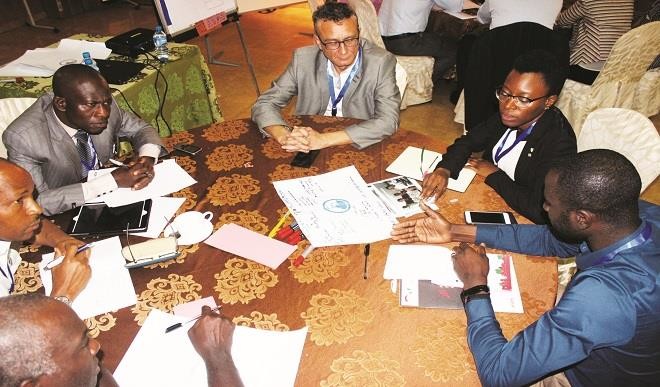GIZ, Fuller Foundation ask developers to turn to affordable housing
About 150 participants drawn from the affordable housing value chain rose from a two-day affordable housing sector dialogue last Thursday with a call on government and developers to consider doing more in the provision of housing for the low income earners. It is said that one-third of the world’s urban population lives in slums. In […]


About 150 participants drawn from the affordable housing value chain rose from a two-day affordable housing sector dialogue last Thursday with a call on government and developers to consider doing more in the provision of housing for the low income earners.
It is said that one-third of the world’s urban population lives in slums. In Nigeria, the low income population normally affected include: low grade civil servants, traders, drivers, commercial motorcyclists, mechanics, motor tyre repairers commonly called vulcanisers, barbers, farmers etc.
The meeting which noted that the largest need for housing in Nigeria is found at the bottom of the pyramid (77 percent) stated that many Nigerians earn less than N500,000 per annum.
The workshop jointly organized by GIZ and the Millard Fuller Foundation maintained that there is big market for affordable housing solution yet private investors place priority on the high-end segment.
Speaking at the close of the workshop, GIZ Nigeria Country Director, Dr. Thomas Kirsch said, “We should be aware of the fact that this market is growing by the day. Yet, most housing projects from both governments and the private sector put much more emphasis on high-income and middle-income segments. So the ones who need housing the most are generally neglected…”
According to Kirsch the urban population of Nigeria is projected to grow from 3.9 billion in 2014 to 6.4 billion in 2050 noting that just the countries alone – China, India and Nigeria will add nearly 2.5 billion to the world’s urban population.
He explained, “This rapid urbanization, paired with high population growth as well as economic progress puts housing markets especially in developing countries under pressure.
“Today already, one billion people lack access to decent shelter even though housing is widely recognized as a human right around the world. Even though households at the base of the economic pyramid might have only little money to spend, they are nevertheless spending about USD 700 billion on housing every year.
“Taking these staggering numbers into consideration, we would actually realize that there is a market for affordable housing solutions targeted at low-income earners across the globe.”
He advised developers, “Let’s start seeing housing for the urban poor not only as an option, it is a necessity that we provide housing for the ones that most need it.”
Similarly, the CEO of Millard Fuller Foundation, Mr Sam Odia who said N60 trillion is needed for mortgage financing in Nigeria maintained that there is profit in affordable housing provision.
He called for review of the 1978 Land Use Decree so land can be unlocked for developers to operate under affordable housing.
For the fact that many titles in the informal sector are unregistered, he called for introduction of parallel title in the informal sector like the parallel foreign exchange exists.
He said Millard Fuller Foundation, with the support of partners is scaling up provision of affordable housing to 1,000 units per annum by 2017. The foundation provides mostly studio apartments which costs N1.65 million. The houses are located in Luvu Madaki in Karu Local Government Area of Nasarawa State.
Special Advisor to the Ogun State Governor on Housing Development and the General Manager of Ogun State Housing Corporation Mrs Jumoke Akinwunmi said all the policy is already in place – what is lacking is implementation.
Akinwunmi charged housing professionals to be creative in their work so as to reduce housing costs. Architects for example, she said should exclude excesses that add cost in designs. According to her additions like bed switches, numerous lighting points can be excluded.
She called for public private partnership but private investors must bring proposals that have “impact”, not merely coming to say, “Give me land”. She advised government to always provide a template for investors to work with.
The Special Advisor charged housing corporations to reject housing proposals that provide housing above N5 million a unit. She asked government to look in the direction of younger people who still have many years in service to go into mortgages.
One interesting point was the call on town planners to include affordable housing plan in the downtown so low income earners are not kept far away making the city centre ghost town.
The workshop ended with a site visit to the 109-unit Fuller estate and the Fuller 400-unit Grand Luvu estate under construction, all in Nasarawa State.
